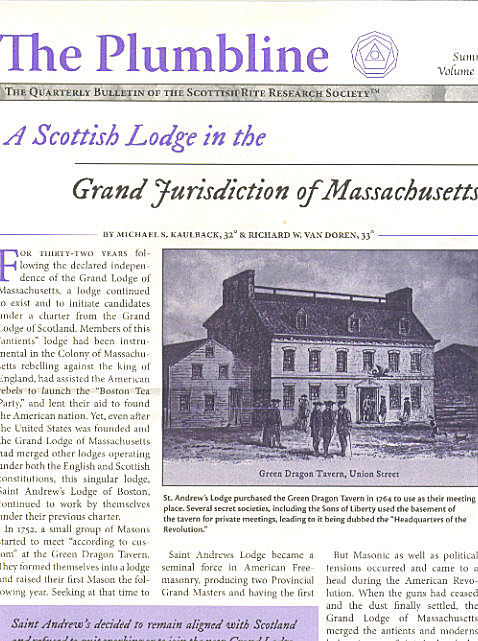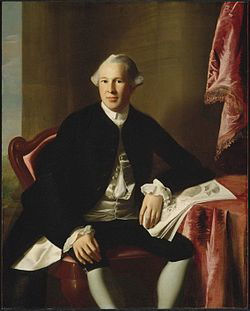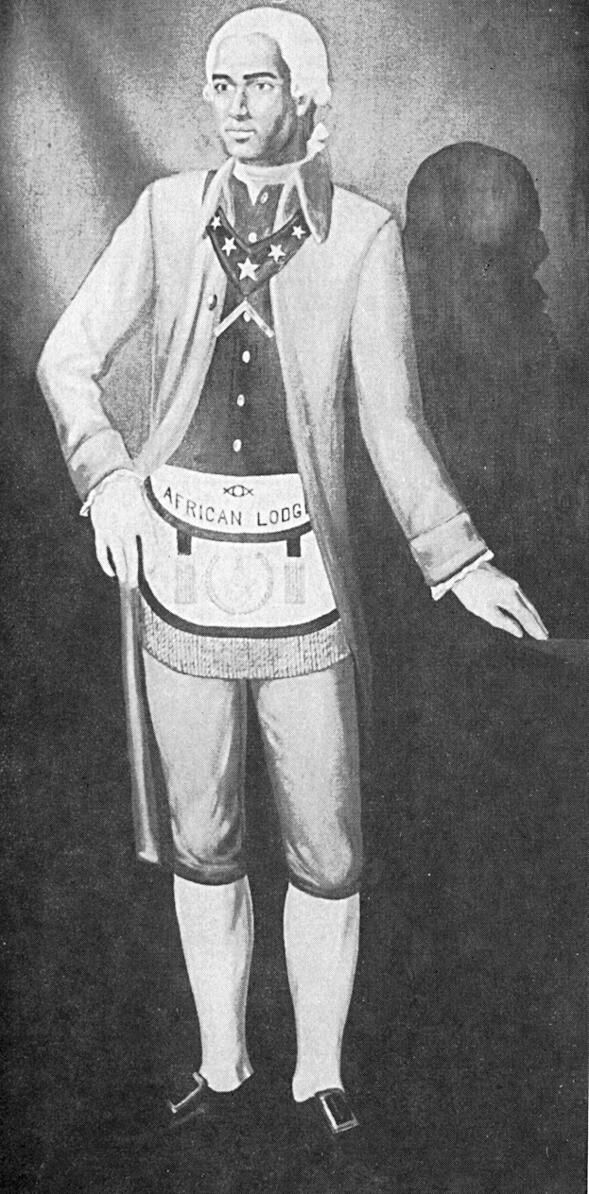GM Joseph Warren Offered A Masonic Warrant To Prince Hall
By Worshipful Brother Frederic L. Milliken
A recent story in the Scottish Rite Research bulletin newsletter, “The Plumbline,” titled “A Scottish Lodge in the Grand Jurisdiction of Massachusetts” intrigued me. Written by old friend Michael Kaulback and Richard Van Doren it chronicles the early growth of the Grand Lodge of Massachusetts with a heavy concentration on Saint Andrews Lodge. Saint Andrews Lodge became the first Lodge of the “antients” working in the colonies, as the authors tell us, chartered by the Grand Lodge of Scotland. There already was a Provincial Grand Lodge of “moderns,” most often referred to as St. John’s Grand Lodge, operating in Massachusetts Bay Colony since 1733. Soon after Saint Andrews partnered with three military antient Lodges attached to the British Army, No 58 English stationed with the 14th regiment, No 106 Scottish stationed with the 64th regiment and No 322 Irish stationed with the 29th regiment, to form a Grand Lodge.
In 1768 Saint Andrews petitioned the Grand Lodge of Scotland to have Joseph Warren as their Grand Master. He was so appointed and served until he was killed at the Battle of Bunker Hill in June 1775. The battle between the antients and the moderns was more than just about ritual and the regularity of practice. It was just as much about the makeup of the two Grand Lodges. St. Johns Grand Lodge was made up largely of wealthy merchants, traders and landed gentry. Saint Andrews Grand Lodge was made up of what we would today call “blue collar” working men, men who worked with their hands. Kaulback and Van Doren give us an example of some of the Saint Andrews members.
George Bray Baker
The Plumbline
William Burbeck Carver
James Graham Chair maker
Samuel Peck Glazier
Thomas Milliken Bricklayer
John Jenkins Baker
Moses Deshon Auctioneer
Joseph Webb, Jr. Ship Chandler
Samuel Barrett Sail maker
Paul Revere Silversmith
Joseph Warren Doctor
Two very interesting stories come from this article. The first is that on August 28, 1769 William Davis was made the first Knight Templar in the United States at Saint Andrews Lodge. Paul Revere followed on December 11, 1769 and Joseph Warren on May 14, 1770. Davis and Warren distinguished themselves at the Battle of Bunker Hill, Warren not surviving the ordeal. This means that before the United States became an independent nation we had Knights Templar on our soil. That is an important development in the history of Freemasonry because at that time the degrees were so new. But the conferring of the degrees Excellent, Super Excellent, Royal Arch and Knight Templar laid the foundation for what would become the “American Rite.”
Paul Revere became the second Grand Master of the union of antients and moderns into the Grand Lodge of Massachusetts that occurred in 1792. Saint Andrews Lodge held out until 1807 when they reached a final agreement with the Grand Lodge of Massachusetts. Kaulback told me personally when I spoke to him by phone that the Grand Lodge of Massachusetts is much more reflective of the antients because the antients won. The union with the moderns was on their terms and the practice of Freemasonry in Massachusetts henceforth was really a practice of antient Freemasonry.
The other interesting story to come from this article is that Grand Master Joseph Warren met with Prince Hall who wanted to form a Masonic Lodge and he agreed to give Hall a warrant to open his Lodge. Before he could execute that decision Warren was killed in the Battle of Bunker Hill. This decision is recorded in the minutes of Saint Andrew’s Grand Lodge minutes. MONUMENTAL! What a game changer that would have been. Of course Prince Hall found another avenue to obtain his warrant.
Perhaps Hall went quickly to another source because Warren told him that while he wanted to give him a warrant the majority of his members would never approve it. Perhaps Hall chose a British antient military Lodge because Saint Andrews had formed itself into a Grand Lodge by association with the same and he was told that. THAT’S ALL SPECULATION. But one has to wonder if Prince Hall had waited and bided his time to approach Warren’s successor, what American Freemasonry would have looked like over the next 200 years.
What we can say is fact that is that Massachusetts was the leader of the nation in the abolitionist movement, that in the 1750s and 1760s Massachusetts had a number of freed Blacks, more than any other state, and that according to the minutes of Saint Andrews Lodge it had 7 Black members in the 1780s and 1790s.
People change and times change and an opportunity lost is sometimes lost forever and sometimes lost for just a long, long time. Sometimes the opportunity lost changes the course of history. GM Joseph Warren was killed in battle so he did not get to give Prince Hall his warrant. Abraham Lincoln was assassinated and a bitter and acrimonious post Civil War Reconstruction followed that never would have happened under him. JFK was also gunned down and Lyndon Johnson hurtled us headlong into the Vietnam War, a move JFK would never have made. Men who rise to the occasion sometimes get shot down and we are all the poorer for it.
But dream with me a minute. Let’s change the clock of history and go back, back, back to 1775. GM Warren doesn’t die in the Battle of Bunker Hill and he does right away grant Prince Hall his warrant to form a Masonic Lodge. That would have set a precedent for every other Grand Lodge in the United States. You have got to think that New York and Pennsylvania and other northern states would have followed suit. Oh, maybe the South wouldn’t have gone along. But then again post Civil War they too might have admitted Black men into their Lodges. Freemasonry could have changed the whole history of this nation and maybe, just maybe the 60s wouldn’t have been the bloody 60s of Civil Rights battles. And maybe Martin Luther King, another assassination that changed history, would still be with us.
Dreaming is fun but it’s not reality. Yet I have to believe that Freemasonry still has a major role to play in the world because it changes the hearts of men. The current world conflict between Muslims, Jews and Christians could be ameliorated by Freemasonry and peace could be made by a Freemason who rose to the occasion. If one does let’s take protective measures to assure that he does not die before his mission has been completed.



